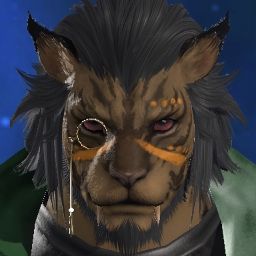Some more tidbits:
Free Companies and Grand Companies are actually taken from real world history - ironically they actually referred to the same thing, organized groups of mercenaries who operated independently of governments in the Middle Ages (roughly analogous to modern day 'independent military contractors') - where as in FFXIV only FCs are actual 'mercenary groups' with GCs the volunteer military forces of each citystate. This explains why during the 2.X storylines when FCs are mentioned by npcs, they're referred to in less than shining terms and are regarded as little more than groups of sellswords and ruffians.
Limsa Lominsa is referred to officially as the 'Thalassocracy'. A thalassaocracy is a system of government which is essentially a state that holds power over the oceans - in the strictest sense, it is one where all their 'territory' is maritime and not land based, which definitely suits Limsa to a tee (not surprisingly, the word thalassocracy is again a Greek word, the Greek citystates after all were strong maritime powers in the Ancient world and actually Eorzea's citystates are very loosely based on).
Pugilist is another word for boxer - the actual origin of the world pugilism is somewhat unclear, but at it's basic it refers to bare-knuckle fistfighting (as opposed to modern boxing which uses gloves that cover the fists), somewhat ironic given the PGL class in FFXIV is forced to use brass knuckles, cesti and other hand weapons.
Thread: Etymology of terms.
-
05-07-2017 08:46 PM #11Player

- Join Date
- Dec 2012
- Location
- Ala Mhigo
- Posts
- 8,355
- Character
- Enkidoh Roux
- World
- Balmung
- Main Class
- Paladin Lv 90
-
05-07-2017 09:30 PM #12Player

- Join Date
- Nov 2016
- Location
- Limsa Lominsa
- Posts
- 973
- Character
- Miyo Mohzolhi
- World
- Sophia
- Main Class
- Scholar Lv 100
The Scholar ability Adloquium is Latin, and means an exhortation or encouragement. The verb form (one of them, anyway) is "adloquor", which means to speak to, to address, or to exhort. It is alternatively written as "alloquium" and "alloquor".
A further root is "loquor", which just means to talk or speak. It's where we get the words "loquacious" and "eloquent" from, for example. Star Trek fans might also be familiar with "locutus", meaning having spoken.
I remember first hearing about this on the UK panel show QI. Being QI, they promptly tittered about the pronunciation of "gloriole".
Interesting; I knew about "free companies" referring to mercenary groups (commonly used in SF&F fiction with the Such-and-such Free Mercenary Company), but didn't know about "grand companies" being the same thing.(2)Last edited by YianKutku; 05-07-2017 at 09:30 PM. Reason: 1k character limit
-
05-08-2017 07:37 AM #13Player

- Join Date
- Sep 2015
- Posts
- 2,312
- Character
- Auriana Redsteele
- World
- Zodiark
- Main Class
- Paladin Lv 83
Not quite. While the word Paladin does ultimately derive from the Palatine Hill in Rome it does so more indirectly.
It originates from the word palatine or palatinus which was used to denote high-ranking officials in Rome due to their association with the imperial palace there.
The bodyguards of the roman emperors were called the Praetorian Guard.
Later the French word paladin was first used for describing the (semi-legendary) knights at the court of Charlemagne and has also been used for the knights of the Round Table from Arthurian mythos.
In both cases the word paladin was not really used until several centuries after the actual events - and entered English even later.(3)
-
05-13-2017 01:33 AM #14Player

- Join Date
- Apr 2015
- Posts
- 2,252
- Character
- Seraphus Highwynn
- World
- Gilgamesh
- Main Class
- Lancer Lv 100
Vorpal Thrust was taken from FFXI, where it was a mid-level Polearm weapon skill counterpart to Vorpal Blade (Sword skill) and Vorpal Scythe (Scythe Skill). Vorpal Sword was mid ranked sword found in FF1.
The word Vorpal comes from the poem Jabberwocky from "Alice and the Looking Glass"
He took his vorpal sword in hand,
longtime the manxsome foe he sought
So rested he by the Tum-Tum Tree
And stood awhile in thought.
It's sort of a non-sense word, in that the author made it up and it has no meaning. From the context, one can glean that it is an adjective that may mean sharp/deadly. The author said he can't explain Vorpal Sword, but said the word Vorpal can be obtained by alternately picking letters from the words: "verbal" and "gospel".One, two! One, two! And through and through
The vorpal blade went snicker-snack!
He left it dead, and with its head
He went galumphing back.
Chaos Thrust is reminiscent of Cherry Blossom from FF9 (Freya's Skill). In Japanese poetry, Cherry Blossom petals are often a big metaphor for blood/life, as blood spurting out from a fine cut with a sword resembles Cherry Blossom petals in the wind. So, the animation of Chaos Thrust showing petals is a metaphor for blood.
Geirskogul is a spear-wielding Valkryie from Norse Mythology. It was also DRG's ultimate weapon skill in FFXI when wielding the Gungnir relic weapon. Its animations of shooting forth a blast of white energy is reminiscent of a re-occuring skill Dragoons have throughout the FF series: Holy Breath(3)Last edited by Jonnycbad; 05-13-2017 at 01:39 AM.
-
05-13-2017 01:41 AM #15Player

- Join Date
- Apr 2015
- Posts
- 2,252
- Character
- Seraphus Highwynn
- World
- Gilgamesh
- Main Class
- Lancer Lv 100
The origin of many AF, Myth, and Esoteric equipment comes from FFXI's Artifact/Relic/Empyrean equipment.
http://ffxiclopedia.wikia.com/wiki/C...Artifact_Armor
http://ffxiclopedia.wikia.com/wiki/Category:Relic_Armor
http://ffxiclopedia.wikia.com/wiki/C...Empyrean_Armor
That said, the new DRK AF, since it's a new job in XIV, will likely have its next AF set have the adjective "Abyss" in its name, e.g. Abyss Flanchard.(1)
-
05-13-2017 05:40 AM #16Player

- Join Date
- Sep 2013
- Location
- The Hermit's Hovel
- Posts
- 3,707
- Character
- Trpimir Ratyasch
- World
- Lamia
- Main Class
- Gunbreaker Lv 100
Weapon trivia! (Cuz I'm bored.)
If it's not named, I either don't know or it's a unique term to the game, or didn't show up on a quick Google / Wikipedia search. I'm not listing franchise history of weapons either.
RELIC WEAPONS
Curtana: the "Sword of Mercy," named after the sword used during the coronation of British Kings and Queens. First appeared in the Song of Roland.
Sphairai: a form of himantes used during ancient Greek boxing.
Gae Bolg: weapon of Cuchulainn from the Irish Ulster cycle mythos. Originally wielded by Scathatch.
Thyrus: a form of staff. Favored weapon of the Greek god Dionysus.
ZODIAC WEAPONS
Excalibur: King Arthur's legendary sword, gifted to him by the Lady of the Lake after Caliburn was broken. (Everyone knows this... or should.)
Aegis (Shield): A form of protection, either a hide or shield, used by Athena and Zeus in Greek mythology.
Ragnarok: the end of days in Norse myth. Literally translates to "Twilight of the Gods."
Longinus: spear used to pierce Jesus Christ on the Cross.
Yoichi (Bow): a legendary (but real) Samurai renowned for his skill with the bow.
Lilith (Rod): Adam's first wife in Bibilical apocrypha, who chose to consort with demons instead of bowing to her husband.
Apocalypse: lit. "an uncovering," as in "of knowledge." Typically used as a portent of doom and destruction thanks to its use in the Bible.
Nirvana: state of enlightenment according to Buddhism, where one has purged oneself of all worldly desires, preventing reincarnation.
Sasuke('s Blades): a legendary ninja.
ANIMA WEAPONS
Almace: sword of Turpin from the Song of Roland.
Ancile: a divine shield said to have fallen from the heavens during the reign of the second King of Rome. Twelve copies were made to confuse thieves.
Verethragana: Persian god of victory.
Ukonvasara: hammer of the Finnish god of thunder, Ukko.
Rhongomianat: spear of King Arthur. (Yep, he had one of those too.)
Gandiva: bow of Arjun, hero of the Hindu epic Mahabharata.
Hvergelmir: a spring (i.e. fountain) in Norse myth. Said to sustain Yggdrasill, as well as house Nidhoggr.
Draconomicon: play on the Necronomicon, a mysterious book from H.P. Lovecraft's works.
Tetrabiblos: lit. "four books." A text on the philosophy and practice of astrology.
Majestas: a Roman term for crimes committed against the Roman people and/or their safety. (Ironic.)
Kannagi: central character of the Tamil epic Silappatikaram.
Nothung: another name for Norse hero Sigurd's sword, Gram.
Deneb: brightest star in the Cygnus constellation. Forms the head of the Northern Cross.
Armageddon: another term for the end of the world from Christian religion. Derives from "Har Megiddo," the valley where the final battle foretold in the Book of Revelation will supposedly take place.
COMPLETE ANIMA WEAPONS
Aettir: a mythic substance in Norse mythology. Said to be the source of all life, but very poisonous.
Priwen: King Arthur's shield (yep, he had one of those too...), or perhaps his boat. Or both. (Arthur had a lot of stuff, mmkay?)
Nypel: a fighting bracelet from central and northern Africa.
Minos: first King of Crete, who oversaw the famous Minotaur sacrifices. Cast as the judge of Hell in Dante's Inferno.
Areadbhar: a spear requested for and wielded by Lugh, an Irish god, that had to keep its tip immersed in water or it would ignite in flame.
Terpander: Greek poet. Invented Greek music, or formed a cohesive system for it anyway.
Kaladanda: the staff of Death from Hindu mythology. Said to be able to kill anyone struck by it, no matter what.
Mimesis: a critical term with a wide array of meanings, from acting to mimicry.
Anabasis: the most famous book of Greek soldier / writer Xenophon. An autobiographical tale of military adventure.
Sindri: the name of a character and a hall in Norse myth, in which the virtuous dead will reside after Ragnarok.
Sandung: ossuary of the Indoneisan Dayak people.
Cronus: Zeus' father in Greek mythology. King of the Titans.
Canopus: brightest star in the Carina constellation and second brightest star in the night sky. Named for a navigator from Greek myth.
... lots and lots. There's more. Maybe I'll get to Gerolt's Masterworks tomorrow...(1)
-
05-13-2017 01:19 PM #17Player

- Join Date
- Dec 2012
- Location
- Ala Mhigo
- Posts
- 8,355
- Character
- Enkidoh Roux
- World
- Balmung
- Main Class
- Paladin Lv 90
Indeed it does, and an addendum to that, the Bandersnatch enemy found in the Chocobo Forest in the Dravanian Forelands is also from the same source (it was also a weird dog-like enemy in FFIX) - the 'bandersnatch' was a monster mentioned in Jabberwocky as a mysterious yet ferocious and dangerous beast - indeed, two of the FFXIV enemy's attacks, 'Fulminous Jaws' (a fire-like attack), and 'Catching Claws' (a swipe attack), are named after lines about the Bandersnatch in Jabberwocky: specifically, "with fulminous jaws" and "claws that catch". When I first saw that I smiled wryly immediately picking up on the reference.

-
05-13-2017 02:40 PM #18
While we're going about terms from the Jabberwocky. The adjectives used to describe the bosses of Wanderer's Palace Hard also come from the poem.
(0)
-
05-14-2017 04:54 AM #19Player

- Join Date
- Sep 2013
- Location
- The Hermit's Hovel
- Posts
- 3,707
- Character
- Trpimir Ratyasch
- World
- Lamia
- Main Class
- Gunbreaker Lv 100
OK, here we go.
GEROLT'S MASTERWORKS
Burtgang: Better known as "Blutgang." Sword of Heime, a legendary Germanic hero.
Glanzfaust: "Shining Fist," roughly translated from German.
Rosenbogen: "Rose Arch," roughly translated from German.
Yagrush: Mace of the pagan god Baal.
Laevateinn: an obscure weapon from Norse mythology. Believed to be a staff.
Vajra(s): means "thunderbolt" or "diamond" in Sanskrit. A type of weapon, as well as the name of a mythical king in the Mahabharata.
Arondight: Lancelot's sword from Arthurian mythos. (It's just an oversized Burtgang, c'mon SE...)
Sirius: the brightest star in the night sky.
Additionally, a lot of bosses and flavor for the "Shadow of Mhach" line borrows from the Ulster cycle of Irish myth, though not exclusively.
SHADOW OF MHACH
Cuchulainn (Cu Chulainn): a hero of the Ulster cycle. Originally named "Setana," he took the name "Cu Chulainn" (Culann's Hound) after killing... Culann's hound and taking the position in penance, until a replacement could be raised.
Echidna: a half-woman, half-snake monster from Greek mythology. Mate of Typhon.
Arachne: a woman from Greek myth turned into the first spider by Athena for her hubris.
Forgall: a character from the Ulster cycle. Suggests Cu Chulainn go train under Scathach to prevent him from marrying his younger daughter Emer while the older is still unwed. When Cu Chulainn returns he still refuses to allow him to marry Emer, leading to Cu Chulainn storming his fortress; Forgall falls off the ramparts in the attack and dies.
Dun Scaith: fortress of Scathach from the Ulster cycle.
Ferdiad: Cu Chulainn's foster brother from the Ulster cycle. Possessed an impenetrable hide as a counter to Cu Chulainn's Gae Bolg, but was nonetheless slain with the spear. (Don't ask how.)
Scathach: warrior woman from the Ulster cycle who trained both Cu Chulainn and Ferdiad. Presided over Dun Scaith and the original owner of the Gae Bolg.
Connla: Cu Chulainn's illegitimate son, raised by his mother alone. Killed by his father, who learned his identity shortly after Connla's death.
... and...
Cait Sith: a type of fairy from Celtic myth. Also believed to possibly be a witch capable of transforming herself into a cat nine times.(1)Last edited by Cilia; 05-14-2017 at 04:58 AM.
-
05-14-2017 10:59 AM #20
Echidna is also known as the mother of monsters in a lot of references I've seen.
Also, theory on how Ferdiad died. His hide may not be penetrated, but he could still be beaten to death.(0)





 Reply With Quote
Reply With Quote






